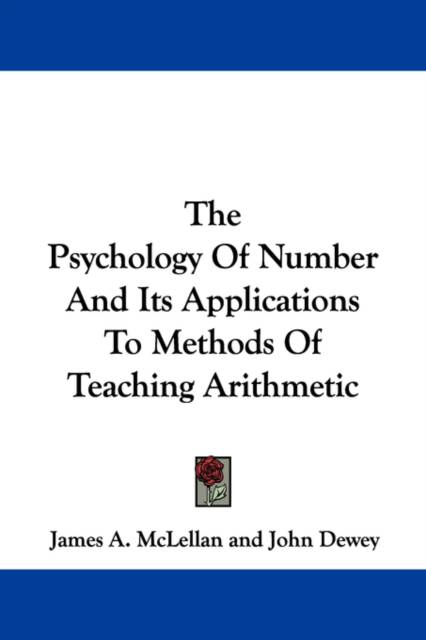
Door een staking bij bpost kan je online bestelling op dit moment iets langer onderweg zijn dan voorzien. Dringend iets nodig? Onze winkels ontvangen jou met open armen!
- Afhalen na 1 uur in een winkel met voorraad
- Gratis thuislevering in België vanaf € 30
- Ruim aanbod met 7 miljoen producten
Door een staking bij bpost kan je online bestelling op dit moment iets langer onderweg zijn dan voorzien. Dringend iets nodig? Onze winkels ontvangen jou met open armen!
- Afhalen na 1 uur in een winkel met voorraad
- Gratis thuislevering in België vanaf € 30
- Ruim aanbod met 7 miljoen producten
Zoeken
The Psychology Of Number And Its Applications To Methods Of Teaching Arithmetic
James A McLellan, John Dewey
Paperback | Engels
€ 44,95
+ 89 punten
Uitvoering
Omschrijving
The book ""The Psychology of Number and Its Applications to Methods of Teaching Arithmetic"" by James A. McLellan is a comprehensive guide to understanding the psychological principles behind the learning and teaching of arithmetic. The author explores the cognitive processes involved in the comprehension and manipulation of numbers, as well as the factors that influence the effectiveness of various teaching methods. The book is divided into three main sections. The first section provides an overview of the psychological foundations of arithmetic, including the development of numerical concepts in children and the role of memory and attention in numerical processing. The second section focuses on the practical applications of these principles to teaching arithmetic, with a particular emphasis on the use of visual aids and manipulatives to enhance understanding. The third section delves into more advanced topics, such as the use of technology in teaching arithmetic and the role of motivation and self-regulation in learning. Overall, ""The Psychology of Number and Its Applications to Methods of Teaching Arithmetic"" is an essential resource for educators and researchers who seek to understand the psychological underpinnings of arithmetic education and to develop effective teaching strategies based on this knowledge.This scarce antiquarian book is a facsimile reprint of the old original and may contain some imperfections such as library marks and notations. Because we believe this work is culturally important, we have made it available as part of our commitment for protecting, preserving, and promoting the world's literature in affordable, high quality, modern editions, that are true to their original work.
Specificaties
Betrokkenen
- Auteur(s):
- Uitgeverij:
Inhoud
- Aantal bladzijden:
- 328
- Taal:
- Engels
Eigenschappen
- Productcode (EAN):
- 9781432504854
- Verschijningsdatum:
- 17/01/2007
- Uitvoering:
- Paperback
- Formaat:
- Trade paperback (VS)
- Afmetingen:
- 152 mm x 229 mm
- Gewicht:
- 480 g

Alleen bij Standaard Boekhandel
+ 89 punten op je klantenkaart van Standaard Boekhandel
Beoordelingen
We publiceren alleen reviews die voldoen aan de voorwaarden voor reviews. Bekijk onze voorwaarden voor reviews.











